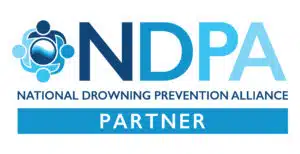Got questions? Look here!
Can’t find your answer? Email, call, or text us!
Think about a group class. There are 3 to 6 students in a class. How much attention are they really getting from their instructor? How much practice time is really possible in a 30 minute class?
Not much, which is why we offer 15 minute private lessons. They will get more attention and practice time in their 15 minute private lesson than they ever will in a group class that lasts 30 minutes.
If you still don’t believe that 15 minutes will work for you, check out our reviews on Google and Facebook!
– You will receive a store credit for any cancellations less than 48 hours from your lesson that is good for one year
– You may cancel for a full refund or reschedule your lesson if it is 48 hours before your lesson
– If All Knox Swim cancels more than 1/3 of the lesson for any reason (ex. pool closure, weather event), your lesson will be rescheduled within 30 days of the original lesson date. If there is no availability, you will receive a full refund.
You can check out our pricing on our Pricing and Info page!
We start teaching students at age 1 all the way through adult at all levels.
If you child is under 3 years old, we require that you get into the water until they are comfortable holding their breath for 3 seconds (Level 2). It is much more enjoyable for everyone when the parents are right there. The kids love to swim to a familiar adult!
We teach at host pools. A host pool is a residential, HOA, or community pool that has agreed to let us use their pool. You can learn more about hosting lessons and fill out our interest form.
We also teach at various indoor locations. See the schedule on our info page.
Yes. Some adults and kids are never scared of the water and others are terrified. We can’t convince everyone swimming is super fun (we all have different interests), but we can help overcome fears. The length of time it takes students to overcome their fears varies, but many students overcome their fears within 3-5 lessons. We want to build a trusting relationship with you, so if there is something you think that could help you or your child, let us know! We are very flexible.
Yes. We have taught swim lessons to many people with disabilities or special needs. It is something we love to do! We feel passionately that everyone should have quality swim lessons and the chance to enjoy the water. It helps that the owner and curriculum developer was a Special Education teacher as well. He has built in flexibility to the curriculum so everyone can achieve their highest potential!
Our recommendations generally revolve around your family’s goals. Do you have a trip coming up that you want your kids to be ready for? Then you should book lessons as frequently as possible, even every day if you can. Do you want your kids to swim a year from now? Once a week will do just fine.
During the summer, many people are more available. We recommend doing everyday each week you want to do lessons to see the best progress.
As you can guess, the more frequently you take lessons, the faster they will improve.
That is a very broad question and depends on the student’s age, previous experience, how quickly they learn, and what exactly you mean by “learn to swim.” We prefer to think in terms of milestones.
Few students can swim independently at age 2, many students can swim independently at age 3, and most students can swim independently at age 4 and older. This requires practice and swim lessons throughout the year on a consistent basis.
For a more thorough overview of what to expect at each age and level, check out the different age group pages to see what you can expect at each age.
Yes. Swim Instructors have their First Aid, CPR, and AED for infants, children, and adults certification and Lifeguard certification.
We do not offer group lessons. We have found that private lessons allow for the most individualized and personal approach, naturally. You can book private lessons by simply going to your account. Don’t have an account? Register now!
We have an email list you can join to be notified of any last minute cancellations. You can also check the booking platform anytime in your account for open lessons. You can join the cancellation email list by filling out the form in your account under “Cancellations”. Then you will never miss a last minute opening!
All Knox Swim uses what we call the “family oriented model”. We know that you know your child better than anyone, so we invite your input before, during, and after lessons. Our goal is to teach your child in the style you think is best. Additionally, parents stay in the pool area during the entire lesson, infants’ and toddlers’ parents are in the pool with them, and private lessons allow personalized instruction. We teach water safety through role-playing with parents and siblings.
You can get an overview of our philosophy on our Pricing and Info page.




